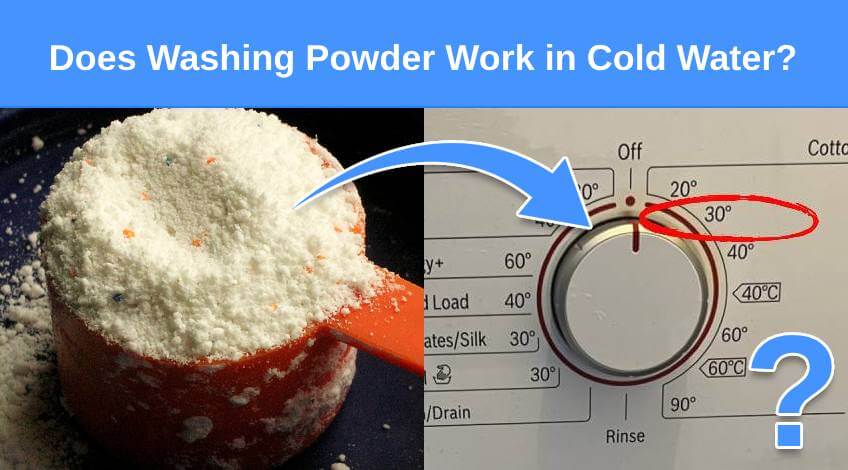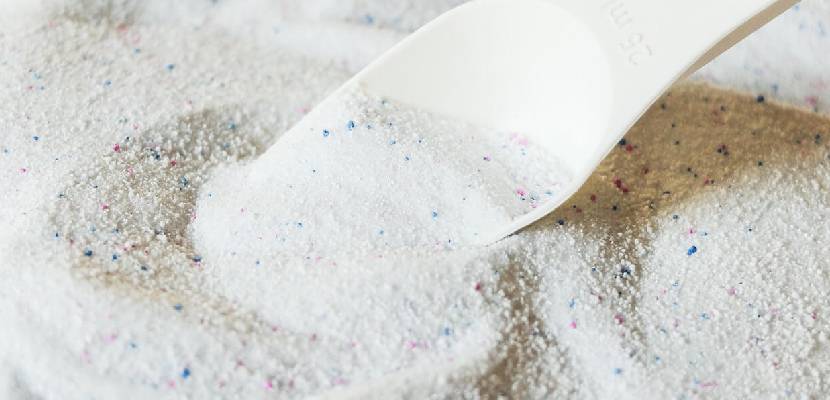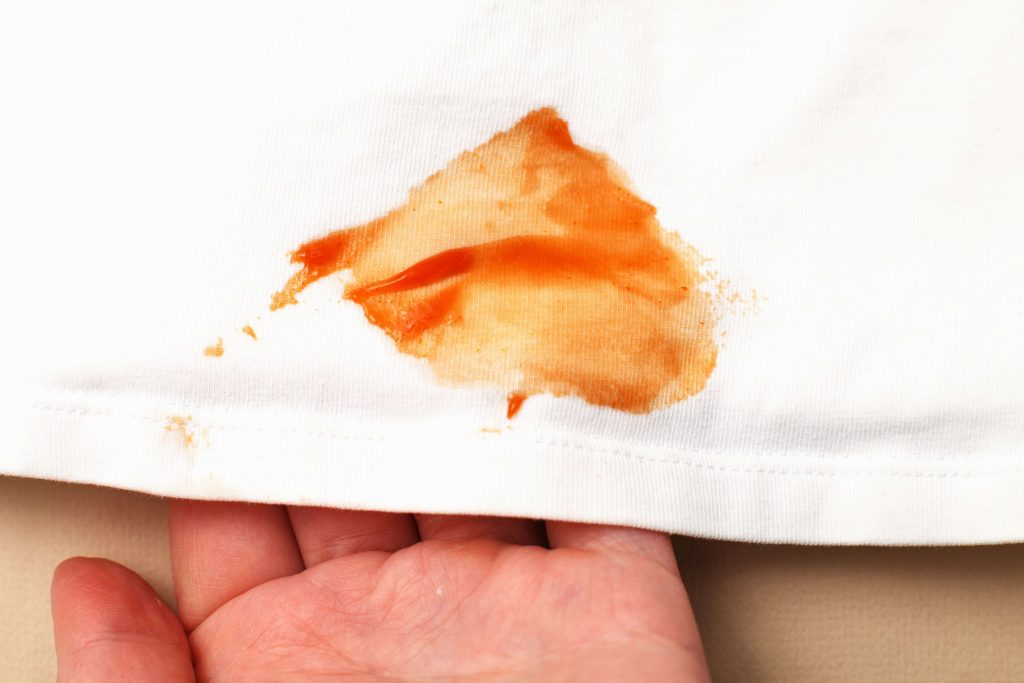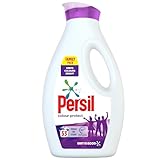
Does Washing Powder Work in Cold Water?
Now that there are so many laundry products to choose from, it can be confusing which one will work best for your needs. This could be the case if you have to choose between liquid and powder detergents.
If you often use cold water in your washing machine, you may be curious if washing powder will work. The answer is yes, washing powder will still be useful in cold water, but using liquid detergent is the better option. This is mainly because in cold washes, powder detergent may not fully dissolve, which can cause problems with your clothing and the efficiency of your washing machine.
Let’s learn more about washing powders, cold washes, and liquid detergents in this article!
Washing Powder In Cold Washes
Washing powders, which are dry forms of detergent, are designed to clean clothes by removing dirt and stains. They contain various ingredients, such as surfactants and enzymes, which work together to break down and remove dirt from fabrics.
Although washing powders are formulated to clean fabrics, how effective they are will be influenced by the temperature of the water you use in the washing machine. The hotter the temperature is, the easier it will be for the powder to dissolve, which makes it easier to penetrate your fabrics to give them a thorough clean.

But what happens if the temperature is low? In cold water which is often around 30°C to 20°C or lower, the powder will have more difficulty dissolving and will take a longer time to dissolve. As a result, it may cause your washer to make up for this by using more agitation or doing a longer wash cycle.
This is why generally, liquid detergents are better for colder wash temperatures. Liquid detergent is already dissolved in water, which means it can work more effectively in cold water compared to powder. It can quickly interact with dirt and stains, making it a preferred choice for cold wash cycles.
- Persil Colour Laundry Washing Liquid Detergent offers outstanding stain removal whilst keeping colours bright
- With this liquid detergent, you can get tough on stains like mud, yoghurt and jam
Of course, although liquid detergent is better for cold washes, washing powders have their strengths too.
Let’s quickly compare the two:
Washing Powder Vs. Liquid Detergent
| Washing Powder | Liquid Detergent |
|---|---|
| Better in hot water, but might not dissolve completely in cold water | Dissolves easily in both hot and cold water |
| Typically comes in a box, but can clump if exposed to moisture | Comes in bottles, less likely to clump, easier to handle |
| Measured using a scoop, can be messy | Comes with a cap for measurement, less messy |
| Good for white and heavily soiled items, has a bleaching effect | Effective on oily stains, less harsh on coloured fabrics |
| Generally cheaper and lasts longer as less is used per wash | Often more expensive, but pre-measured doses can prevent overuse |
| More packaging waste, but often more compact and lightweight to transport | Liquid versions can contain more water, heavier to transport but often come in recyclable packaging |
| Can be more irritating to sensitive skin due to residues | Usually softer on the skin, often available in hypoallergenic formulas |
If you often do your laundry in cold water, liquid detergent is a good choice. However, if the budget is tight and you often use hot washes more than cold ones, washing powders will be your best option.
TIP: It’s also worth noting that there are now washing powders that are specially formulated for use in cold water. Check the packaging of the product!
The Benefits Of Doing Cold Washes
You may be wondering by now, why not do hot washes then? In modern times, washing clothes in cold water has become increasingly popular.
Using cold temperatures in the washing machine offers several benefits, such as the following:
Extended Fabric Life
Cold water is gentler on fabrics than hot water, which helps in preserving the quality and lifespan of your garment. Hot water could easily cause some fabrics to shrink and fade.
Delicate fabrics, in particular, can benefit from cold washes, as they are less likely to suffer from the stress that hot water can cause.
This means that your clothes will maintain their colour and shape for longer periods, reducing the need to get new clothes. Unless of course, you want to do some shopping!
Removes Stubborn Stains
Contrary to what many people may believe, cold water can be highly effective in removing certain types of stains, especially those that are protein-based, such as blood and sweat.

This is because hot water can set the stains further into the fabric, making them more difficult to remove. Cold water, on the other hand, is gentle enough and allows the stains to be washed away more easily.
Energy And Cost Savings
One of the most significant advantages of cold water washes is it will lower your electricity bill.
Heating water for washing clothes highly affects the amount of energy used by a washing machine. By going for cold washes, you can definitely decrease the amount of energy you’re using, leading to lower electricity bills.
Not only that, but a lower energy consumption also has a positive impact on the environment. This is a huge win for those who want to reduce their carbon footprint.
Less Ironing And Steaming
Cold water washing can lead to less wrinkling of clothes compared to hot water. This is because the gentler washing action and lower temperature help to prevent clothes from getting excessively wrinkled during the wash cycle.

As a result, you may find that your clothes need less ironing or steaming after being washed in cold water, saving you time and effort in your laundry sessions!
SEE ALSO: What Temperature Is A Cold Wash? (here’s what you need to know)
Tips for Using Washing Powder in Cold Water
To get the best out of your washing powder in cold water, here are some tips:
- Choose the right detergent
Look for washing powders that are formulated for cold water use. These will have the necessary ingredients to clean effectively at lower temperatures. - Pre-treat stains
For tough stains, apply a small amount of washing powder directly to the stain, rub gently, and let it sit before washing. - Measure correctly
Use the right amount of washing powder according to the instructions on the package. Too little won’t clean effectively, and too much can leave residue on your clothes. - Do a full or longer cycle
Cold water may take longer to work on stains, so choose a longer wash cycle to give your clothes a thorough clean. - Keep your washing machine clean
Regular maintenance of your washing machine will ensure it cleans effectively, especially important when using cold water.
- The innovative formula with anti-residue technlology dissolves quickly in contact with water
- Instantly activates, and penetrates deep down to fibres to deliver an outstanding clean even in colder temperatures
And there you have it! Using washing powder in cold water can be just as effective as using hot water, especially if you pick the right detergent and follow the tips shared above. Not only does it save on energy bills, but it’s also kinder to your clothes and the planet.
So why not give it a try? Feel free to ask questions if you have any below!
Frequently Asked Questions
Yes, you can use laundry powder in cold water, but it may not dissolve as completely as in hot water.
Liquid detergent is better for cold water because it dissolves more easily and works more effectively at lower temperatures.
Your powder detergent won’t dissolve properly in cold water because the lower temperature makes it harder for the powder to break down, leading to less effective cleaning.
If you use too much powder detergent, it can leave residues on your clothes and inside your washing machine, which may cause irritation and reduce the efficiency of your machine.
The disadvantages of powder detergent include the potential for it to not dissolve fully in cold water, clumping when exposed to moisture, and the possibility of leaving residues on clothes and in the washing machine.






